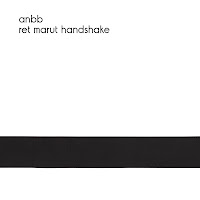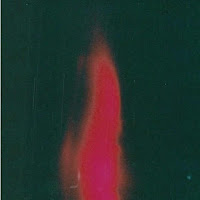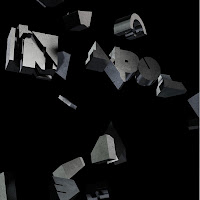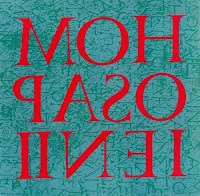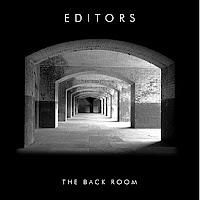
Okay, so far, so teen flick. Aside from shots on NYC's trendier locations, the key differentiator is the knowing musical backdrop, from the offbeat 8-bit electronic score supplied by Devo's Mark Mothersbaugh (imagine his work for Rugrats, but all grown up), to the soundtrack which features stalwarts of the US current alternative scene like Band Of Horses, We Are Scientists and Vampire Weekend (who turn in the exclusive track 'Ottoman'). Devendra Banhart, making a brief cameo in one scene of the film, delivers a typically oddball funk-folk-unclassifiable song in 'Lover' and the rest on the soundtrack are mostly from bands I've never heard of.
Where the film became fairly cloying with its continual namedropping and attempts to look musically cool (doesn't that just grate? I mean, who would do that?), the soundtrack album is eminently listenable, with lots of interesting and introspective ear-friendly songs perfectly evoking the subtle, heart aching mood of the movie. It has a Richard Hawley track, for example. That said, my favourite track overall is still the urgent dirge-y NYC punk of The Jerk Off's 'Screw The Man' (sentiment of the lyrics most definitely to one side); so what if they're a prefab, made-up-for-this-film band and this is a pisstake, it's a great track which reminds me of The Runaways 'Cherry Bomb' mixed with The Gun Club's 'Sex Beat', two classics from the CBGB era.

Those Brave Airmen are a four-piece band from Stratford-upon-Avon consisting of Dave Johnson (vocals, rhythm guitar), Neil Edden (bass), Gavin Skinner (drums) and Mark Rehling (guitars) who released their debut single on iTunes last week. Entitled 'Pure Evil', the track has an unmistakeable grungey atmosphere and raw production edge, Johnson delivering the lyrics in a style which Eddie Vedder would be proud of and a grinding middle eight interplay between guitar and bass which could last a whole lot longer and never become tiring.
'I guess our influences are far ranging although the 90's grunge sound is definitely one we've all grown up with and enjoy,' Edden told me by email. 'It's not really a conscious decision, it's just the way that we sound together on that song.' Other Those Brave Airmen tracks cover different territories - slower, faster, harder, softer. Describing their eclectic live sound, Edden says 'I like to think that seeing us is a bit of a mixed bag – almost like seeing a covers band, but with originals – there's something in there for everyone.' What's not to like?
Download 'Pure Evil' from iTunes here.





